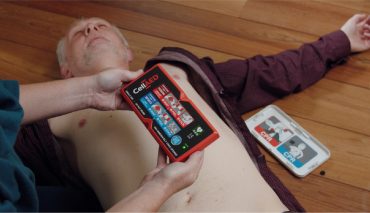Am I at risk of cardiac arrest?
According to this study published in Circulation, the incidence of sudden cardiac death is approximately 1 per 1,000 inhabitants of industrialised countries.
That makes sudden cardiac arrest one of the world’s most frequent causes of death.
For such an insidious killer, it is surprising how many causes of sudden cardiac arrest boil down to choices people make – as opposed to for example, afflictions we’re born with.
Heart attack leading to cardiac arrest
Sudden cardiac arrest can result from heart attack – which in-turn is generally caused by coronary heart disease.
Coronary heart disease is caused by a build-up of fatty deposits in the coronary arteries. Heart attacks occur when these build-ups eventually block the flow of oxygenated blood to the heart muscle.
The risk of heart disease can be congenital – that is, something we’re born with.
Risks can also be exacerbated by lifestyle choices, such as smoking, diet and lack of exercise.
Coronary heart disease and other cardiovascular diseases accounted for more than one-third of all deaths globally in 2019, according to the Journal of the American College of Cardiology. JACC editor-in-chief, Dr Valentin Fuster described these as “premature deaths” – suggesting that they are preventable.
One way to prevent premature deaths is to address the behaviours that cause them.
Behavioural causes for cardiac arrest
As we’ve discussed previously, heart attack and cardiac arrest are two different things.
While a heart attack frequently offers plenty of warning signs before it hits, a cardiac arrest happens without warning.
A heart attack can escalate into a sudden cardiac arrest. It’s not the only cause of cardiac arrest, however.
Environmentally-influenced events such as drowning, electrocution, choking and hypothermia can cause the heart to arrest.
Lifestyle choices and habits can also play a role. Drug abuse and excessive alcohol consumption are both known factors causing sudden cardiac arrest, for example.
One relates to luck, the other to extraordinary behaviours most avoid. A third category of behavioural causes, however, is far more common.
Some foods, beverages and medications we trust to be safe for consumption have been shown to increase risk of cardiac arrest.
RELATED ARTICLE: Knowing sudden cardiac arrest when we see it
Energy drinks are a prime example. This clinical trial demonstrated the potentially harmful impact less than a litre (or 32 oz) of energy drink consumed within 60 minutes had on heart rate.
It’s possible to buy single energy drinks containing more than this amount from any supermarket or corner store. Purchasers could be forgiven for automatically thinking these containers are safe to consume.
Partly for this reason, JACC said stimulant-containing energy drinks should be avoided in anything more than small doses, and should not be “marketed to or consumed by vulnerable populations.”
Some blood pressure medications, antidepressants and other psychiatric drugs have also been linked to increased risks of sudden cardiac arrest.
These examples show that education and awareness of risk factors are needed to help consumers make better choices.
Being prepared
Back to the Circulation study mentioned earlier. It concluded:
“Sudden cardiac death occurs most often at home in the presence of relatives and after a longer period of typical warning symptoms…educational programs tailored for patients at risk and their relatives should have a higher priority.”
In other words, prevention is better than cure. Given so many causes of sudden cardiac arrest appear to be at least partly behavioural in nature, this is good advice.



